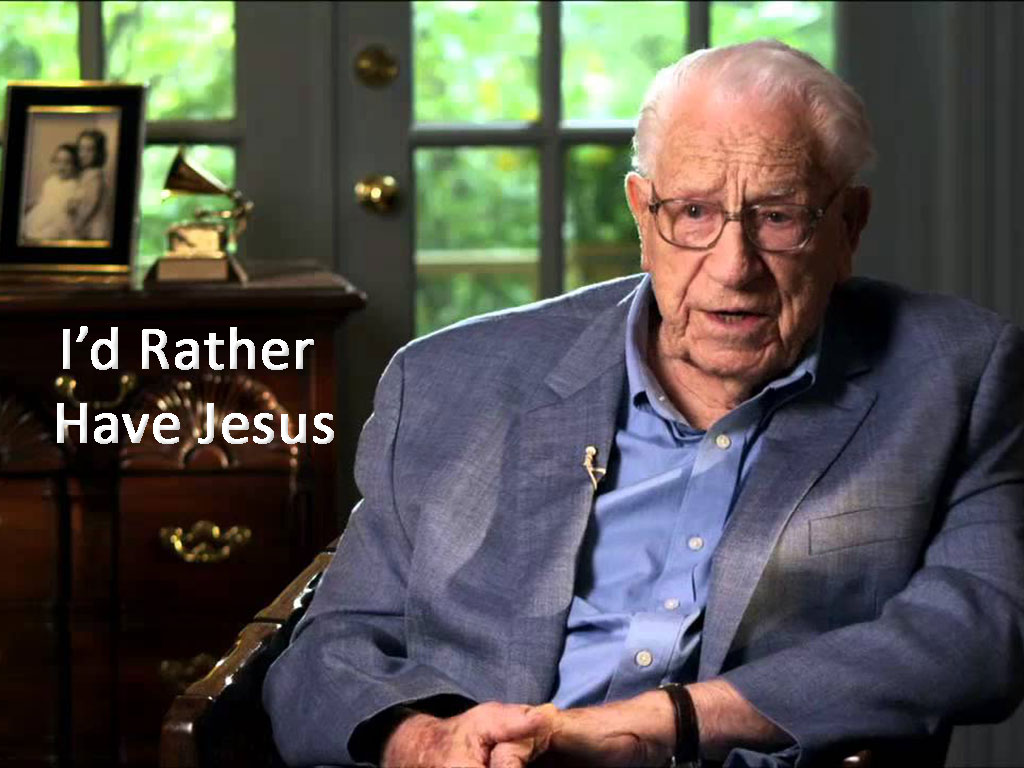I’d rather have Jesus than silver or gold;
I’d rather be His than have riches untold;
I’d rather have Jesus than houses or lands;
I’d rather be led by His nail-pierced hand.
Than to be the king of a vast domain
And be held in sin’s dread sway;
I’d rather have Jesus than anything
This world affords today.
I’d rather have Jesus than men’s applause;
I’d rather be faithful to His dear cause;
I’d rather have Jesus than worldwide fame;
I’d rather be true to His holy name.
He’s fairer than lilies of rarest bloom;
He’s sweeter than honey from out the comb;
He’s all that my hungering spirit needs;
I’d rather have Jesus and let Him lead.
Although this song is not in the Salvation Army Song Book, and is unfortunately not often sung by a congregation, we do hear it as a vocal solo from time to time. Many readers have no doubt heard it sung by its composer, George Beverly Shea, of Billy Graham Crusade fame. The lyrics were written as a poem, by Rhea Miller.
George Beverly Shea was born in 1909 in Winchester, Ontario, Canada, where his father was a pastor. When Bev was twenty-one years old, he worked in a New York insurance company’s office, as well as in radio broadcasting as an avocation. One day Fred Allen, the host of a nationwide talent show, visited the office. Learning that Bev liked singing, Mr. Allen had him audition, resulting in Bev’s singing of “Go Down, Moses” on the show. He lost the contest to a yodeler, but received fifteen dollars and a taste of fame. On a Sunday morning shortly after this, Bev Shea found Rhea Miller’s poem on the family piano when he sat down to practise. His mother had purposely left it there in concern for her son’s ambitions. The words spoke to Bev about his goals, and he quickly composed a melody. Discovering the poem’s effect on her son, Mrs. Shea was moved to tears. Bev Shea sang the song publicly for the first time in church that morning in 1922. Of course it became the “signature song” of this amazing man, who lived to be 104 years old. He began working with Billy Graham in 1946 and continued for nearly sixty years. It is noteworthy here that in his obituary, Shea included the Salvation Army as a choice for those wishing to make contributions in his memory.
Words: Rhea Miller Music: George Beverly Shea
References: Robert J. Morgan, Then Sings My Soul
www.georgebeverlysheamemorial.org






